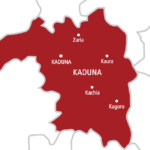State governments have been tasked with the urgent need to deliver on the existing social contract they have with the masses, to douse tensions and agitations that have the potential to threaten public peace and safety.
The Community Advocacy for Peace and Strategic Leadership Initiative (CAPSL-Initiative), which gave the charge in a statement on Monday, said until Nigerians begin to demand accountability from their respective state governments, human capital development will remain largely elusive.
In the release signed by its chairman, Akwuobi Emeka Francis, and Secretary, Pius Pamela, CAPSL-Initiative said its investigation has so far revealed a steady increase in revenues from the federal account allocation committee (FAAC) to the 36 states, and the Federal Capital Territory (FCT).
According to the group, a reduction in the cost of governance by governors and other elected/public office holders will free resources, which will subsequently be deployed to critical areas of need such as employment generation, infrastructural development, and credit opportunities, among other basic amenities of life.
- Family of 7 dead after eating cassava meal in Sokoto
- 4 drown, 20 rescued as canoe capsizes in Sokoto
“A situation where governors and other elective and political office holders display opulence amid biting hunger and excruciating economic realities provokes the poor, many of whom need as low as N100,000 to establish themselves.
“We have it on good authority that allocations to states and the Federal Capital Territory (FCT) have been on the increase for months now, without corresponding improvements in the lives of the ordinary citizens.
“It is worthy of note that the recent protests that happened in parts of the country might have been averted had many of the states been sensitive to the basic needs of their people.
“We daresay that there is a nexus between insecurity and absence of opportunities needed to better the lots of the ordinary Nigerians, whose demands are as basic as pipe borne water, cottage industries, access to education and health, feeder roads for farmers to convey their produce to markets, among others.
“It is a no-brainer to state that where development exists, there will be no need for rural-urban migration, which has continued to put strains on infrastructure in cities.
“It is heartrending that many promising young men and women have dropped out of school, owing to their inability to pay tuition fees, which have continued to rise above the capacity of the ordinary Nigerian parent.
“How many states have functional scholarship boards, which are saddled with the mandate to offer education aid to deserving indigenes?”
The group noted that while the federal government has its core responsibilities in the areas of foreign policy, defence/security, and others, states must brace up for the socio-economic development of their people.
It admonished Nigerians to demand accountability and transparent application of public funds by their governments, as well as officials.

 Join Daily Trust WhatsApp Community For Quick Access To News and Happenings Around You.
Join Daily Trust WhatsApp Community For Quick Access To News and Happenings Around You.


